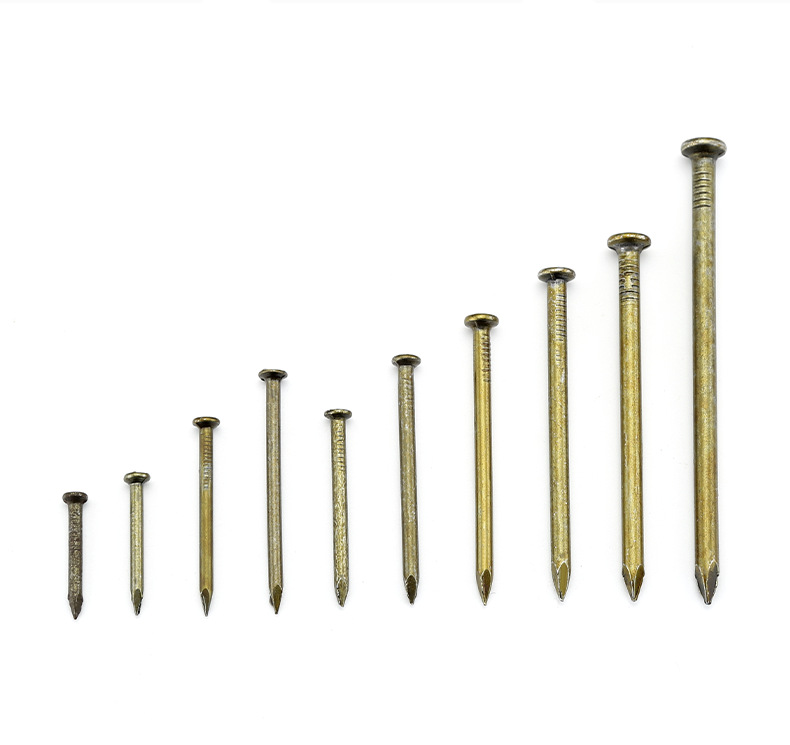Concrete steel nails, also known as masonry nails, are specifically designed for nailing into concrete or other masonry and hard materials. They are typically made from hardened steel, which allows them to penetrate such hard surfaces without bending or breaking.

Design and Structure
Here are the key design features of concrete steel nails:
- Flat, Penetrating Tip: Unlike the sharp point of many nails, the tip of a concrete nail is often flattened to a chisel-like shape. This allows it to force its way into the concrete without splitting it.
- Shank: The shank of a masonry nail is typically thick and strong to resist bending. It can be smooth or fluted. Fluted shanks are designed to improve holding power.
- Head: These nails usually have a large, flat head that provides a solid striking surface and helps to hold the nailed material in place.
Material
Concrete nails are generally made from hard, strong steel and are often tempered or hardened to provide additional strength. Some are also coated or treated to resist corrosion.
Uses and Applications
- Fixing Wood to Concrete: One of the most common uses of concrete nails is to fix wooden battens or frames to concrete or masonry surfaces.
- Securing Metal to Concrete: They can also be used to secure metal fixtures or fittings to concrete.
- Carpet or Tile Installation: In construction and renovation projects, they are often used to install carpet strips or tile to concrete or masonry floors.
- Construction Projects: They are used in various construction projects where fastening to masonry or concrete is required.
- Temporary Fixtures: They can be used to hold temporary fixtures in place in concrete or masonry.
However, it’s important to remember that concrete nails should not be used in situations where a strong bond is required between the concrete and the fastened material, as they can potentially crack or damage the concrete.
Special tools, such as a hammer drill or a powder-actuated tool, may also be needed to drive these nails into the hard concrete surface. Always remember to wear safety glasses when working with concrete nails, as pieces of concrete or metal can potentially fly off during installation.